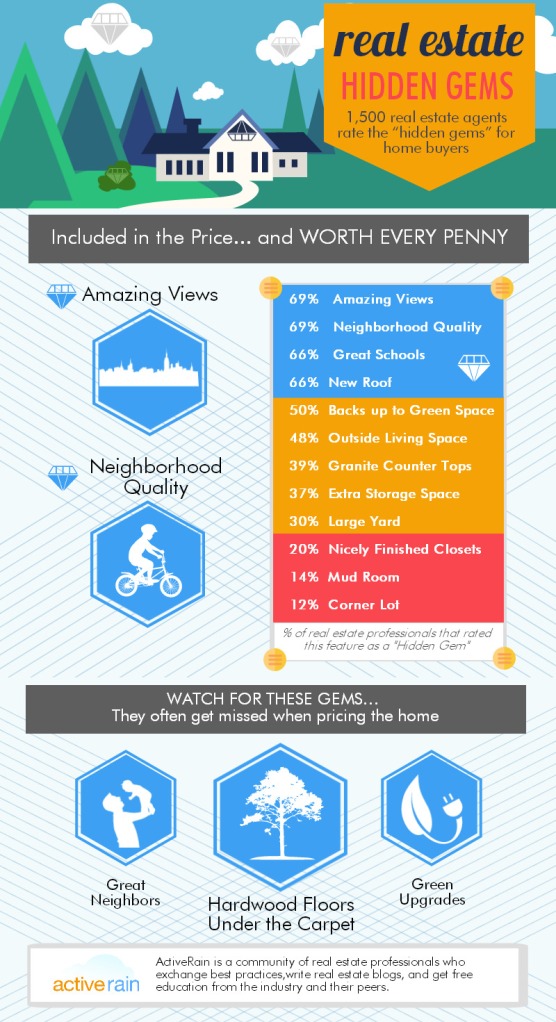 “As the busy spring real estate season gets into gear, sellers appear to have the upper hand across much of Southern California.
“As the busy spring real estate season gets into gear, sellers appear to have the upper hand across much of Southern California.
That’s the word from Zillow, the real estate data website that tracks housing markets nationwide. It released a report on the top 10 buyer’s and seller’s markets in the U.S. Wednesday morning, and Los Angeles made the list as the fourth-strongest market for sellers right now. Riverside ranked sixth.
A strong seller’s market, says Zillow, doesn’t necessarily mean its prices are soaring — and indeed median prices have been flat here in recent months — but rather quick sales, few price cuts, and homes selling at or above asking price.
In buyer’s markets, sales are taking longer and price cuts are more common.
Right now, Zillow said, there are big differences in different parts of the country.
Of the top 10 seller’s markets, seven are in the West and two are in Texas. San Jose, San Francisco and San Antonio topped the list. For buyers, nine of the top 10 markets are in the Midwest or Northeast, with Cleveland, Philadelphia and Tampa, the only Florida market on either list, the most buyer-friendly.
“The real estate data in markets on both coasts are telling markedly different stories,” said Zillow chief economist Stan Humphries. “Real estate has always been local, and as the spring market gains momentum, this old adage will only become more pronounced.”
Zillow also crunched data at the local level to see what neighborhoods are good for sellers, and for buyers, around Los Angeles. Red-hot Eagle Rock took the top spot for seller’s market, followed by Canyon Country in Santa Clarita, Tujunga, Mar Vista and Valencia. The top buyer’s markets included the Hollywood Hills, Beverly Glen, Northwood in Irvine, San Pedro and Venice.” ( End of article.)
From Bob Phillips: Last year was an extreme seller’s market at this point of the year, due to very low inventory, relatively low prices, and low interest rates – a veritable trifecta of optimal selling conditions.
So, what’s different this year? Three important – and related – factors.
First, More inventory to choose from. While more houses available would usually be good for buyers, the other two factors are preventing that from happening.
Second, Prices are about 20% higher. That factor has almost entirely eliminated investor buyers, who either bought low – early in the year, last year – to “flip” the house at a higher price, or – bought in order to hold the property for a while, as a rental. Today’s higher prices make both of those reasons to buy, much less attractive – to investors.
Third, interest rates are at least a full percentage point higher, now, which has dramatically affected monthly payments, making the combination of higher prices, and higher payments, making homes much less affordable than they were a year ago.
So, does that mean that this is not a good time to buy?
If that were the case, there wouldn’t be many sales occurring, which is currently not the case. What I’m seeing is a good, steady stream of transactions happening – just not the flurry we had in 2013. This has resulted in more of a balance, which, to me – contrary to the article above – seems like more of a balanced market – equal for both buyers and sellers – at least here in South Orange County.
That means that prices aren’t really escalating – not much, anyway, so buyers can afford to take a little more time, to sort out their options. ( No more – for the most part – of houses selling in hours.) Nice houses are still selling fairly quickly – a week or two – unless they’re obviously a lot higher than recent closed escrows. Many selling prices are pretty much what we were seeing in July and August of last year – some, a bit lower, or higher.
What’s the bottom line?
I see the rest of this year being a relatively flat year, price wise. That means that there is no compelling reason to hurry to buy, and not much reason for sellers to wait for higher prices, before putting their houses on the market. If there are good reasons for you to buy, then it’s pretty much an OK time to do so. ( Meaning that I don’t think that prices are going to go either up, or down, more than a couple of percentage points, between now and next February.)
If you have a good reason to sell, it is also a good time – just don’t expect to sell for much more than nearby houses have sold for during the past 6 or 7 months.
What about sellers who don’t have equity?
One category of potential sellers this isn’t going to be helpful to, are those who are still either underwater – owe more on their loan than the house is presently worth – or even break even. For that reason, there are still going to be some homeowners who may finally resort to a short sale – meaning that they walk away with nothing, other than the relief of no longer being slave to a high mortgage payment, that they haven’t been able to refinance out of.
If YOU – or someone you know – are in such a position, there are some solutions, and I am trained to assist such homeowners. Short sales have become easier to do, not necessarily requiring a “hardship”, as they used to, and you don’t necessarily have to be behind in your payments. One other thing, there has been some misinformation that the IRS or the State of California, can still come after you, ( For liability on debt “phantom income” that you never really received, in a short sale.) that is really NOT usually the case, here in California. For those so affected, just give me a call, for me to clarify in detail.
If you’ve been thinking of buying, selling, or short selling, give me a call and let’s discuss your options.



 It can be pretty intimidating to dip your toes into the realm of home ownership, especially if you’re a first-time homebuyer. To make things worse, there are a number of myths floating around out there surrounding the home buying process.
It can be pretty intimidating to dip your toes into the realm of home ownership, especially if you’re a first-time homebuyer. To make things worse, there are a number of myths floating around out there surrounding the home buying process.





 Spring is here, and it’s time to get your home in order!
Spring is here, and it’s time to get your home in order!
Comments Off on What’s Ahead For Mortgage Rates This Week – March 31, 2014